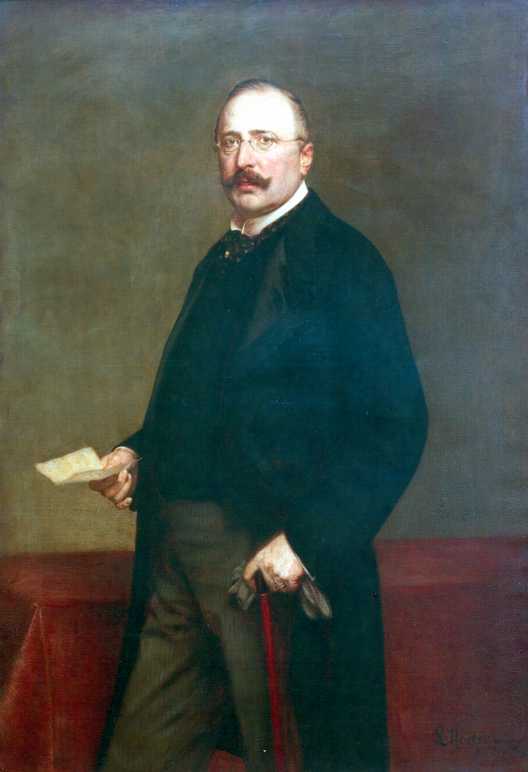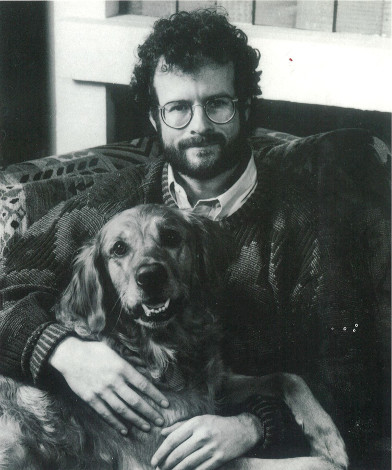|
Gay Wisdom for Daily Living brought to you by White Crane Institute ͏ ͏ ͏ ͏ ͏ ͏ ͏ ͏ ͏ ͏ ͏ ͏ ͏ ͏ ͏ ͏ ͏ ͏ ͏ ͏ ͏ ͏ ͏ ͏ ͏ ͏ ͏ ͏ ͏ ͏ ͏ ͏ ͏ ͏ ͏ ͏ ͏ ͏ ͏ ͏ ͏ ͏ ͏ ͏ ͏ ͏ ͏ ͏ ͏ ͏ ͏ ͏ ͏ ͏ ͏ ͏ ͏ ͏ ͏ ͏ ͏ ͏ ͏ ͏ ͏ ͏ ͏ ͏ ͏ ͏ ͏ ͏ ͏ ͏ ͏ ͏ ͏ ͏ ͏ ͏ ͏ ͏ ͏ ͏ ͏ ͏ ͏ ͏ ͏ ͏ ͏ ͏ ͏ ͏ ͏ ͏ ͏ ͏ ͏ ͏ ͏ ͏ ͏ ͏ ͏ ͏ ͏ ͏ ͏ ͏ ͏ ͏ ͏ ͏ ͏ ͏ ͏ ͏ ͏ ͏ ͏ ͏ ͏ ͏ ͏ ͏ ͏ ͏ ͏ ͏ ͏ ͏ ͏
|
|
||||
| This Day in Gay History | ||||
February 17Born 1854 - FRIEDRICH ALFRED KRUPP, German armaments heir, born (d: 1902); The Krupp family, a prominent 400-year-old German dynasty from Essen, have become famous for their steel production and for their manufacture of ammunition and armaments. The family business, known as Friedrich Krupp AG Hoesch-Krupp in modern times, merged with Thyssen AG in 1999 to form ThyssenKrupp AG, a large industrial conglomerate. Brought up like Frederick the Great, to fulfill the ambitions of a father who hated him, the heir to the German munitions empire spent much of his life waiting for his old man to die so he could cut loose. And cut loose he did, particularly in Italy, where he consecrated a “holy” grotto – “the Hermitage of Fra Felice – dedicated to entertaining Italian youths. Within the grotto, and dressed in the robes of a Franciscan monk, Fritz Krupp would frolic with his favorite boys as sex was accompanied by three violins and orgasms by fireworks. The crowning touch was a delightful bit of Teutonic kitsch: As in a Playboy Club, with all the bunnies adolescent males, “members” were given keys, shaped like miniature golden bullets and designed by Fritz himself. They would have been a laff-riot at Belsen-Bergen. In 1902 he, and the painter Christian Wilhelm Allers, were caught up in a scandal involving youths Fritz had "procured" in Capri and transported to the Bristol hotel in Berlin (after even the corrupt Capri authorities had had enough of his pederasty). A tumultuous few weeks ensued. On November 15, 1902 the Social Democratic magazine Vorwarts claimed in an article that Friedrich Alfred Krupp was homosexual and that he had a number of liaisons with local boys and men and that his fondest attachment was to Adolfo Schiano, an 18-year-old barber and amateur musician. A week later, on November 22, 1902, Krupp committed suicide. In a speech at Krupp's burial, Emperor Wilhelm II attacked the Social Democratic politicians, insisting that they had lied about Krupp's sexuality. Krupp's heirs began a suit against Vorwärts, but soon abandoned the action. Died 1994 - RANDY SHILTS, American author and activist died(b: 1951); a highly acclaimed, pioneering gay American journalist and author. He worked as a reporter for both The Advocate and the San Francisco Chronicle, as well as for San Francisco Bay Area television stations. In addition to his extensive journalism, Shillts wrote three best-selling, widely acclaimed books. His first, The Mayor of Castro Street: The Life and Times of Harvey Milk, is a biography of the first openly Gay San Francisco politician, Harvey Milk, who was assassinated by a political rival in 1978. The book broke new ground, being written at a time when "the very idea of a Gay political biography was brand-new." Shilts's second book, And The Band Played On: Politics, People and the AIDS Epidemic (1980-1985), published in 1987, won the Stonewall Book Award and brought him nationwide literary fame. And the Band Played On is an extensively researched account of the early days of the AIDS epidemic in the U.S. The book was translated into seven languages, and in 1993 was made into an HBO film with many big-name actors in starring or supporting roles, including Matthew Modine, Richard Gere, Anjelica Huston, Phil Collins, Lily Tomlin and Alan Alda, among others. The film earned 20 nominations and 9 awards, including the 1994 Emmy Award for Outstanding Made for Television Movie. There is controversy, now, over Shilts’ coinage of the “Patient Zero” term to describe Gaetan Dugas. Turns out he probably had nothing to do with the initial spread of HIV. When the book was released, Dugas' story became a controversial subject in the Canadian media. Shilts claimed that "the Canadian press went crazy over the story" and that "Canadians... saw it as an offense to their nationhood.” The original study identifying Dugas as the index case had been completed by William Darrow, but it was called into question by University of California San Francisco epidemiologist Andrew Moss. Moss wrote in a letter to the editor of The New York Review of Books, "There is very little evidence that Gaetan was 'patient zero' for the US or for California," while also stating that Shilts did not overstress Dugas' lack of personal responsibility. Sandra Panem in the magazine Science uses Shilts' approach toward Dugas' behavior as an example of his "glib" treatment of the science involved in the epidemic. It was suggested that Shilts' representation of Dugas as "murderously irresponsible" is in actuality "Shilts' homophobic nightmare of himself, and that Dugas is offered as a "scapegoat for his heterosexual colleagues, to prove that [Shilts], like them, is horrified by such creatures." Many years later, in the 2000s, it was shown, by tracing the roots of the virus, that it had spread from Africa to Haiti, and then to the U.S. in the mid-1960s, before Dugas would have been very sexually active, if at all, and before he was working as a flight attendant. In 2016, a study of early AIDS cases demonstrated that Dugas could not have been "Patient Zero" His last book, Conduct Unbecoming: Gays and Lesbians in the U.S. Military: Vietnam to the Persian Gulf, which examined discrimination against Lesbians and gays in the military, was published in 1993. Shilts and his assistants conducted over a thousand interviews while researching the book, the last chapter of which Shilts dictated from his hospital bed. Shilts bequeathed 170 cartons of papers, notes, and research files to the local history section of the San Francisco Public Library. At the time of his death, he was planning a fourth book, examining homosexuality in the Roman Catholic Church. We are immeasurably poorer for his loss. | ||||
|
|8|O|8|O|8|O|8|O|8|O|8|O|8|O|8| Gay Wisdom for Daily Living from White Crane Institute "With the increasing commodification of gay news, views, and culture by powerful corporate interests, having a strong independent voice in our community is all the more important. White Crane is one of the last brave standouts in this bland new world... a triumph over the looming mediocrity of the mainstream Gay world." - Mark Thompson Exploring Gay Wisdom & Culture since 1989! |8|O|8|O|8|O|8|O|8|O|8|O|8|O|8| | ||||
|
|||||
|



